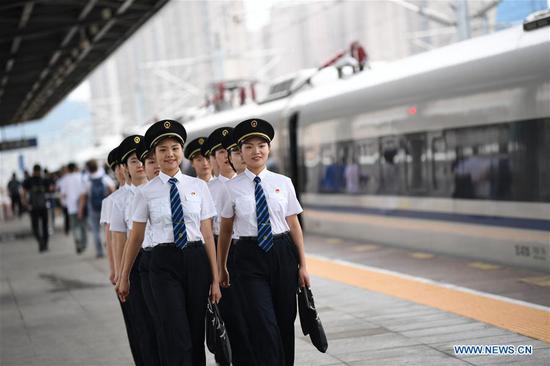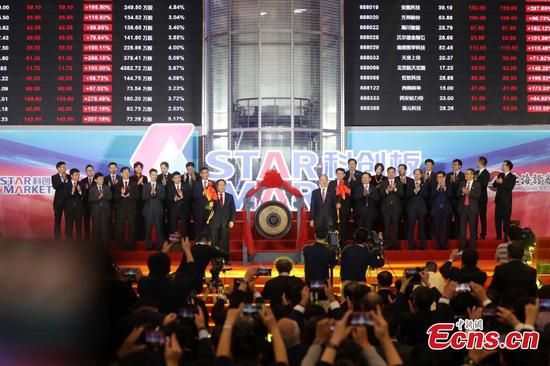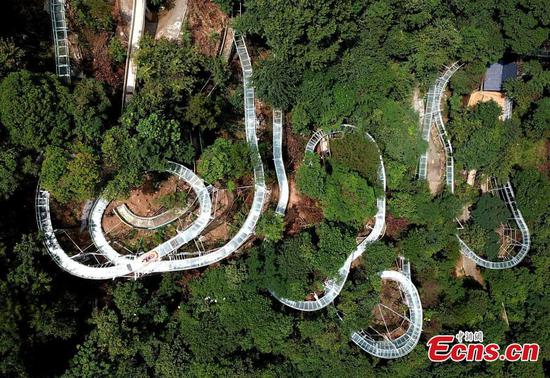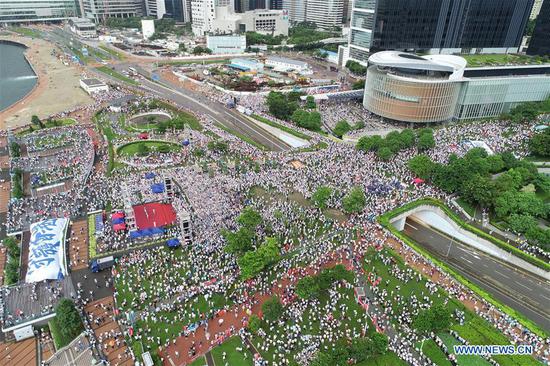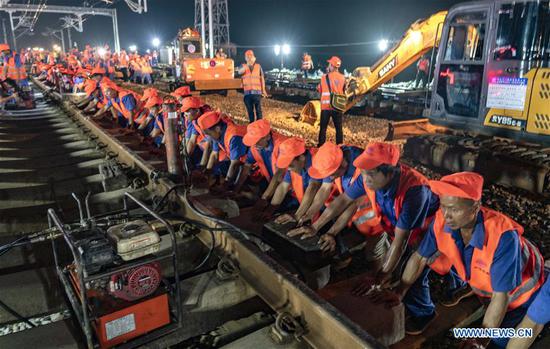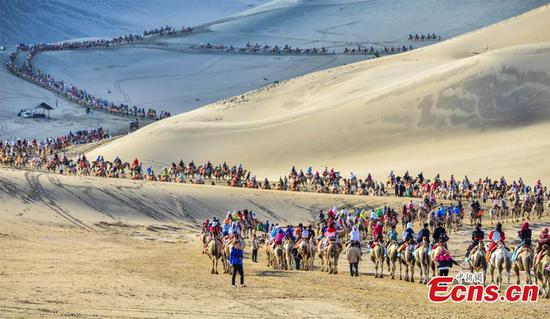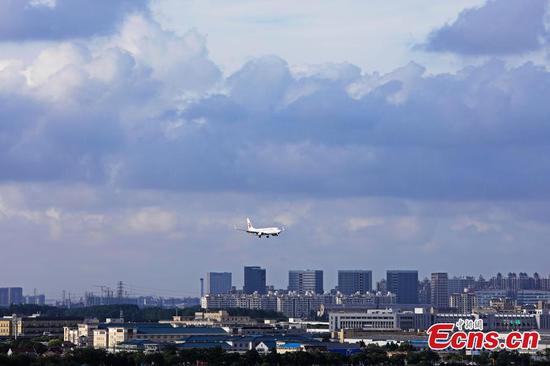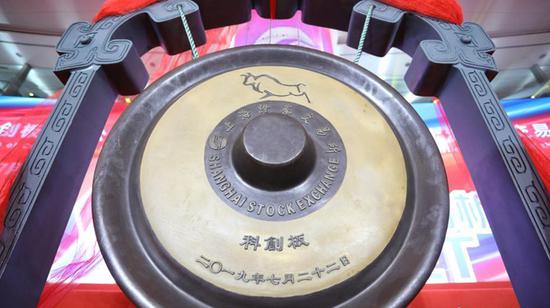
Visitors interact with an intelligent robot at an industrial exhibition in Hangzhou, Zhejiang province, in May. (Photo by Long Wei/For China Daily)
Zhejiang, an eastern coastal province in China, is banking on the digital economy, powered by Alibaba and a host of small-and medium-sized enterprises, to reach 4 trillion yuan ($588.23 billion) by 2022 and account for more than 55 percent of its gross domestic product, officials said.
During the past three years, significant strides have been made in digitalization, thanks to the growth of the digital economy.
The province's digital economy surged 15.1 percent year-on-year during the first quarter. Its digital economy totaled 2.33 trillion yuan last year, accounting for 41.5 percent of the local economy.
"The development of the digital economy is a major driving force for both economic reform and social reform. This is why the government has given priority to building the digital economy," said Yuan Jiajun, governor of Zhejiang province, at a recent news conference in Beijing.
He said that to build the digital economy, the province had established three zones and three centers. The digital industrial zone incubates new business models and distinctive towns, such as the Yunqi Cloud Town in Hangzhou. The industry digitization zone mainly increases the production efficiency of traditional industries through digital transformation. Internet Plus, Robot Plus, and Big Data Plus platforms empower traditional industries.
According to Yuan, through process optimization and technology advancement, industries can save tens of millions of yuan of costs. Zhejiang's industrial labor productivity per person above a designated size increased from 167,800 yuan in 2013 to 225,000 yuan in 2018.
The third zone is the digital economy innovative coordination zone, where the government gives favorable policies to talents and advanced technologies. "While 5G technology is gaining momentum, the government of Zhejiang has attached great importance to the development of 5G networks. The capital city of Hangzhou was selected as one of the first pilot cities for 5G networks in China."
In terms of the three centers, Yuan noted that the digital innovation center boosts the marketization of the digital economy, the trade center facilitates cross-border e-commerce, while the financial center promotes the integration of the digital economy and the traditional finance industry.
Che Jun, secretary of the Zhejiang Provincial Committee of the Communist Party of China, said that "building the digital economy is our top project, through which traditional industries are transformed and optimized, and the innovative ability and competitive edge of Zhejiang is enhanced".
He added that taking advantage of the integrated development of the Yangtze River Delta region, Zhejiang will continue to develop its digital economy.
Gao Hongbing, vice-president of e-commerce giant Alibaba Group, a symbol of Zhejiang's digital economy, said that the company is stepping up efforts to boost the province's digital economy, by establishing institutions such as the Zhejiang Lab for innovative research and development, as well as the Alibaba Damo Academy for Discovery, Adventure, Momentum and Outlook.
"We will continue to support the digital transformation of Zhejiang. Our new retail network increases efficient supply, fintech innovation offers financial services to small- and medium-sized enterprises and consumers, while smart logistics accelerate the construction of intelligent networks," Gao said.
According to Yuan, the digital transformation of the Zhejiang government is also promoting the development of its digital economy. The government's online administrative platform now integrates the public service apps from 81 departments, and the province-city-county all-in-one public service app now has over 25 million registered users and 7.24 million daily active users. A total of 385 livelihood issues can be addressed through the app.
The private economy is also supporting Zhejiang's digital economy. Data from the State Council Information Office showed that currently, the private economy accounted for 65 percent of Zhejiang's GDP, and contributed to 74 percent of the tax income and 77 percent of the export volume. Up to 93 percent of the enterprises in Zhejiang are private enterprises, creating 78 percent of the local employment.
From 2016 to 2018, the government's tax cuts and fee reductions totaled 424.5 billion yuan, and the goal for this year is 200 billion yuan. The government is making efforts to offer private enterprises financial assistance, as well as to reduce the project approval period.
"In the next step, we will continue to offer high-quality services to private enterprises, and boost the innovative development of the private economy," Yuan said.













